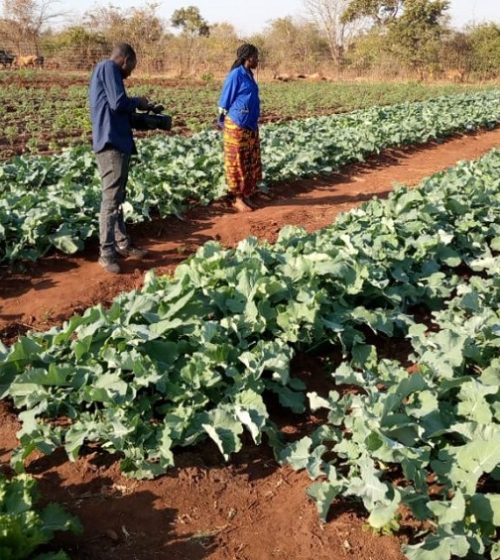The Eastern Province Jurisdictional Sustainable Landscape Program (EP-JSLP) is implementing community subgrants to provide incentives for communities to shift from unsustainable natural resource management to alternative livelihoods. The intervention is aimed at enhancing the economic and environmental benefits for rural communities in Eastern Province through income-generating and value-addition activities. The Community Subgrants projects are in the three sectors of Agriculture, Forestry, and Wildlife, covering income-generating activities such as beekeeping, fish farming, goat rearing, vegetable production, and agro-processing, implemented in an integrated manner. The Subgrants component represents 15.8% of the total EP-JSLP budget.
The project uses the community subgrants initiative to promote sustainable natural resources management by combating deforestation and unsustainable resource extraction, involving the community in sustainable practices. By transitioning to livelihood activities such as beekeeping, mushroom harvesting, wild fruit picking, pole cutting, and caterpillar collection, the community has produced quality honey and reduced deforestation within the forestry sector. In line with the Government’s policy of promoting Climate-Smart Agriculture through the Ministry of Agriculture, the program supported community grants for initiatives such as agro-processing and value addition, small livestock rearing, aquaculture, and horticulture, among others. Local tourism ventures such as eco-tourism lodges, paintings and handicrafts, game ranching, and other community initiatives under the wildlife sector were also supported.

The project supported a total of 81 subprojects, with a cumulative value of about US$ 5.4 million.
The Project uses the support through grants as a means to reinforce behaviour change among the beneficiaries communities as subgrants provide a real opportunity to uplift their incomes and offer positive contribution to their livelihoods while improving the environment. Overall, the Project’s success is attributed to community participation, the creation of alternative livelihoods, and collaborative stakeholder partnerships through the promotion of integration of activities across the sectors.

